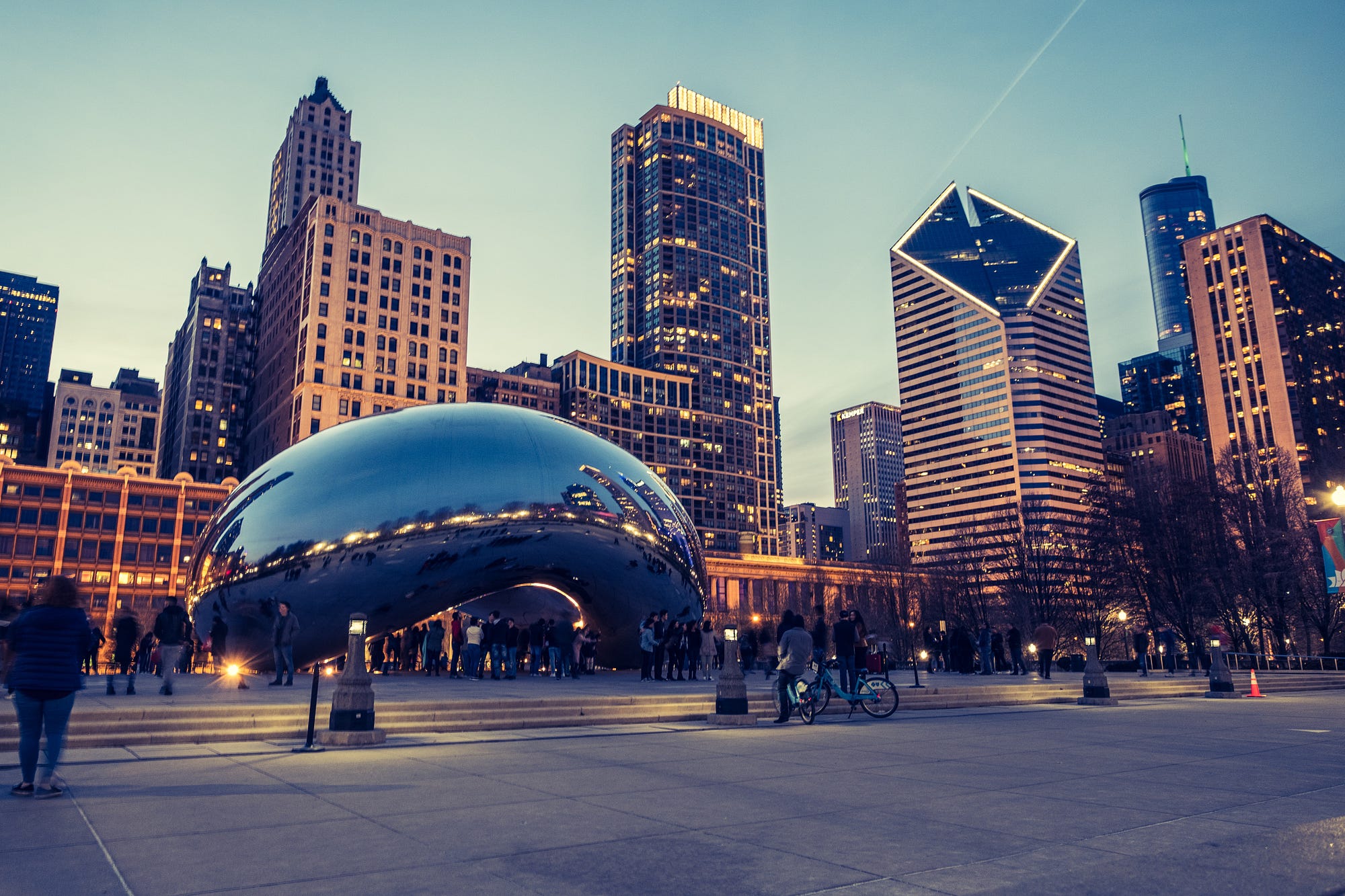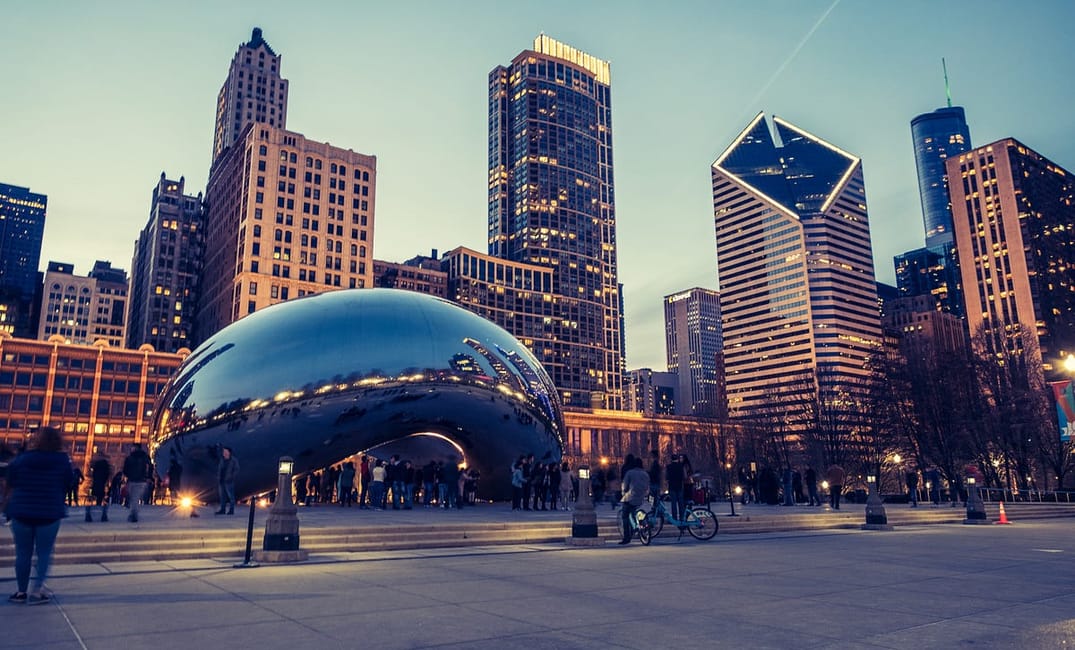
I’d been living in Chicago for nine months when I lost my fingerprint. After walking several blocks in the cold shock of November — not quite the -20º arctic wilderness we’d been threatened with, but still inhumane by a native Californian’s standards — I’d stepped into the train station to take the red line home and pulled out my phone to buy my ticket with Apple Pay.
But the home button didn’t recognize any of my fingerprints. I huffed on them, rubbing them against the slippery polyester of my jacket, but it was no use. I wasn’t allowed in. I was a non-person. The Metra employee safe in her box smirked at me.
Before this moment, I’d been a San Franciscan living in Chicago. I moved here with the intention of staying for one year, knowing nothing about the city other than what the internet had told me—polar vortexes, sports and deep-dish pizza (in descending levels of my own personal horror). Californians tend to lord their unique combination of culture and weather over other states, and after three decades of living in the Bay Area, I expected the worst from the Midwest.
Chicago and I had become unexpectedly well-matched partners. To know her was to know myself.
But what I’ve experienced in the last nine months bears no resemblance to what any blog has told me. From someone who finds San Francisco far too cold, 30 degrees became one of my new favorite temperatures — seriously. The secret is that everyone agrees that 30 degrees is cold. As for the sports fans, I braced myself for incarnations of SNL’s “Da Bears” crew every time I walked into a bar, but they never materialized. And sure, there’s deep dish around, but there’s also the world’s most devastatingly perfect avocados, available for $1.49 at the local grocery store. The biggest surprise was Chicago’s food diversity, including some of the best Mexican food I’ve had (I’m willing to die on this hill—come at me).
While my new city didn’t play into its stereotypes, it remains impossible to describe what the city actually is. Maybe my California-colored-glasses were obscuring the heart of things, so I decided to get some help from locals.
For months I crossed the line of polite Midwestern stranger formality and asked passing Chicagoans about the culture of their city. I received vague responses, people swimming in circles of their own logic. One man even tilted into an identity crisis as he realized he couldn’t define the city he’d grown up in. Many apologized for the cold. “Just wait for summer,” they said. But I didn’t need to wait. I was already having the time of my life. Chicago and I had become unexpectedly well-matched partners. To know her was to know myself.
Trying to derive some comparative insight about my new city, my husband and I visited New York City. When we arrived at 1:00 a.m. in the East Village, the city’s hipness charged at me, nearly knocking me over. I hadn’t seen any gold Latex bodysuits in Chicago. But from Bushwick to Chelsea, everyone had “a look.”
I can’t speak for the city. I can only tell you I love it.
Chicago didn’t seem to have that, but it also didn’t have the blandness of San Francisco fashion. In Chicago, if someone is wearing workout gear, they’re probably on their way to (or from) the gym. In San Francisco, people in the workout gear are just as likely headed to brunch or the grocery store. It’s important to keep the appearance of health and youth in a city that worships at the altar of tech to the detriment of everything and everyone else. San Francisco’s former patched-together sense of weirdness—a mashup of multicolored Christmas lights and S&M—is fading.
And while I had my thumb on San Francisco and New York City, Chicago still eluded me.
What I’ve gleaned is this: Chicago is not ironic. There is no trash on the streets, no single unifying architectural scheme, no lack of food choices, no one trying to stand out, no single defining industry, no snobbery, no one in a rush, not one angry comment by passing strangers. I can add up all the nothings, but they don’t give me an answer to the question “What’s it like there?” I can’t speak for the city. I can only tell you I love it.
Summer rolled in, and my new neighbors were right: in the sweet season, the whole city hugs you. The smell of chocolate lingers in the air. Businesses bloom, bursting onto the sidewalks. Cicadas buzz invisibly from treetops, and fireflies appear at dusk in wooded areas. I ambled along those streets every day, knowing how precious and limited it was, because my work had granted me only the singular year in Chicago.
In one year, there’s no pressure to “become” anyone. My freedom here relates to an idea my sister brought up during her speech at my wedding. In front of 200 guests, she mentioned that I’d once told her, “It’s my dream to be put in a room full of people I don’t know.” At the time, the anecdote stunned me, as I’d completely forgotten about making that declaration. But here in Chicago, I’m remembering why—I feel choked by labels and definitions.
In the train station that day, my cell phone, designed in Cupertino, California, told me, “You aren’t who you are.”
When I go home to San Francisco, I’m surrounded by people who know me — a wonderful, lucky thing. But in their eyes, I see reflections of myself, subjective characteristics I can’t list. It’s not that the truth is too terrible (well, maybe a bit), but the definitions feel etched in stone, with no chance of revision.
In Chicago, I am alone, without any friends or family (save for my husband, around whom I am free to be exactly myself, whoever the hell that is). Here I interact with strangers every day, and in these brief encounters, we each have a chance to remake ourselves. With zero expectations, I’m free to be all the best characteristics. Instead of yearning for something I can’t change, I simply do; I am; or at the very least, I try. I love all these new versions of “me” I’ve created, because they dissolve almost as soon as they are forged, like the human equivalent of Snapchat. And while this helps me understand why I like it here, it doesn’t help define Chicago.
In the train station that day, my cell phone, designed in Cupertino, California, told me, “You aren’t who you are.” I had become no one in a station that was neither quiet nor busy. Not clean, but not dirty. Because like me, Chicago does not have a fingerprint. It gives enough room in its “nots” to let you be whoever you want to be, and to remake that version again and again and again.
Hey! The Bold Italic recently launched a podcast, This Is Your Life in Silicon Valley. Check out the full season or listen to the episode below featuring Hunter Walk, investor and former head of product at YouTube. More coming soon, so stay tuned!







